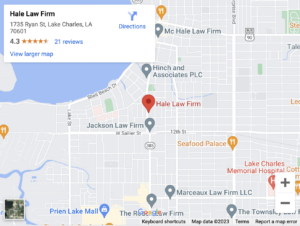Taylor Hale | March 26, 2025 | Personal Injury
Are Tornadoes Worse Than Hurricanes?
The debate over whether tornadoes cause more destruction than hurricanes sparks strong opinions. Both natural disasters bring immense force, leaving communities devastated. Knowing the differences between these two severe weather events helps people understand the risks and the legal or financial challenges they may face afterward. Tornadoes vs. Hurricanes: Which Causes More Damage? Tornadoes and… read more
Taylor Hale | March 19, 2025 | Personal Injury
Does Renters Insurance Cover Hurricane Damage in Lake Charles, LA?
Renters in Lake Charles, LA, often question if their renters insurance covers hurricane damage. The area experiences many hurricanes and strong storms. Knowing what your policy covers is important to protect your finances after a storm. Does renters insurance cover hurricane damage in Lake Charles, LA? The answer depends on the specifics of your policy…. read more
Taylor Hale | March 5, 2025 | Personal Injury
What Are the 5 Categories of Hurricanes?
Hurricanes are powerful tropical storms that can cause devastating effects on communities, infrastructure, and the environment. Knowing the categories of hurricanes helps with preparedness and safety. The Saffir-Simpson Hurricane Wind Scale categorizes these storms into five distinct levels, which gauge their potential impact. Category 1 Hurricane A Category 1 hurricane is the least severe on… read more
Taylor Hale | January 13, 2025 | Car Accidents
Most Dangerous Roads/Intersections in Lake Charles, LA
Some roads and intersections see more than their share of car accidents. This phenomenon can happen for many reasons, including poor road design that results in sharp turns, blind intersections, and inadequate crosswalks. Collisions that happen in these areas can cause serious injuries and even deaths. Those who survive their traffic accidents might suffer from… read more
Taylor Hale | June 27, 2024 | Brain Injuries
Delayed Concussion Symptoms
Around 29% of adults will experience a concussion at some point in their lives. Every year, about 3.8 million concussions occur in the U.S. due to sports and recreation alone. While concussions are often viewed as minor injuries, any type of brain injury should be taken seriously. A concussion is usually the result of a… read more

